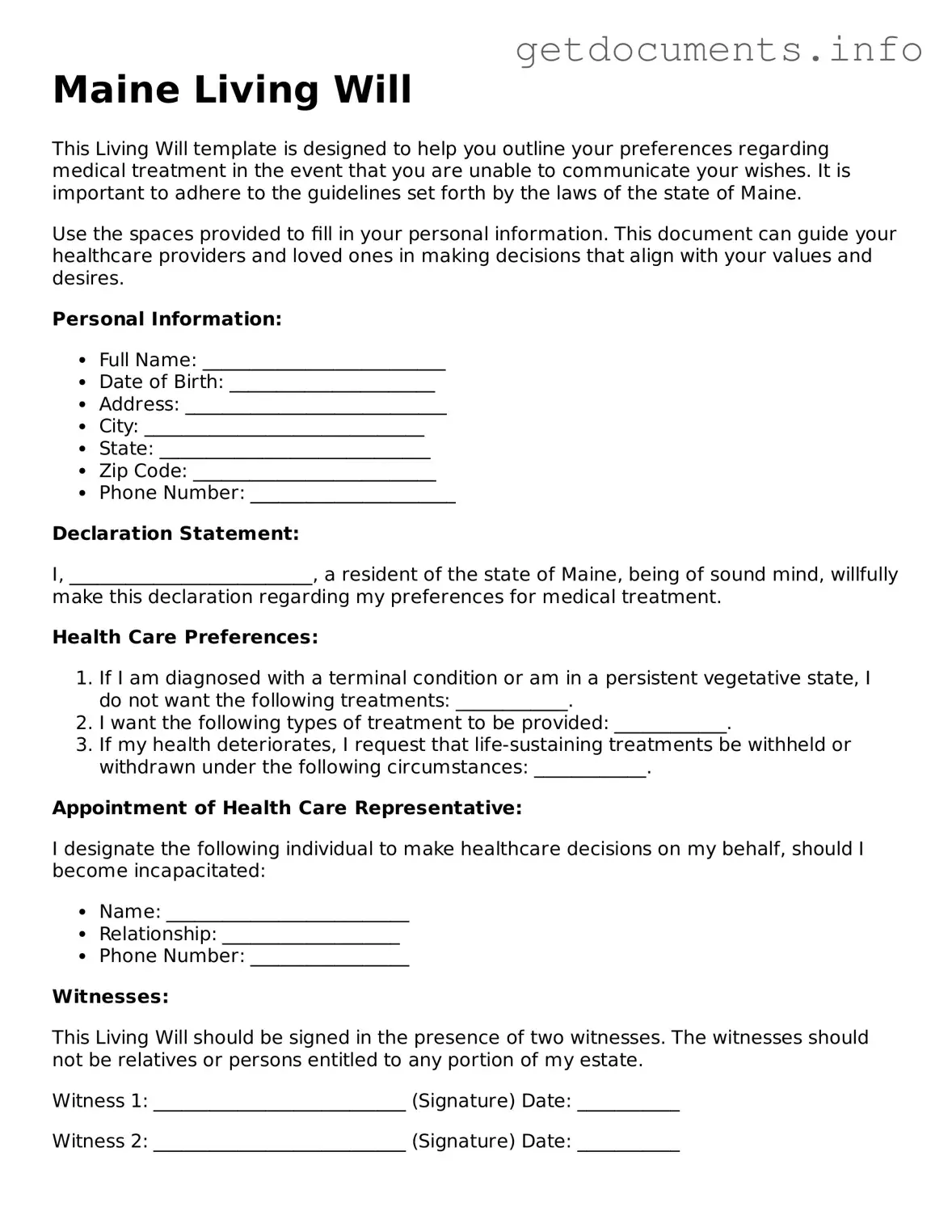Free Living Will Template for Maine
A Maine Living Will is a legal document that allows individuals to outline their preferences for medical treatment in the event they become unable to communicate their wishes. This form serves to guide healthcare providers and loved ones in making decisions that align with the individual's values and desires. To ensure your wishes are respected, consider filling out the Maine Living Will form by clicking the button below.
Access Living Will Editor

Free Living Will Template for Maine
Access Living Will Editor
Got places to be? Complete the form fast
Fill out Living Will online and avoid printing or scanning.
Access Living Will Editor
or
⇩ PDF File
